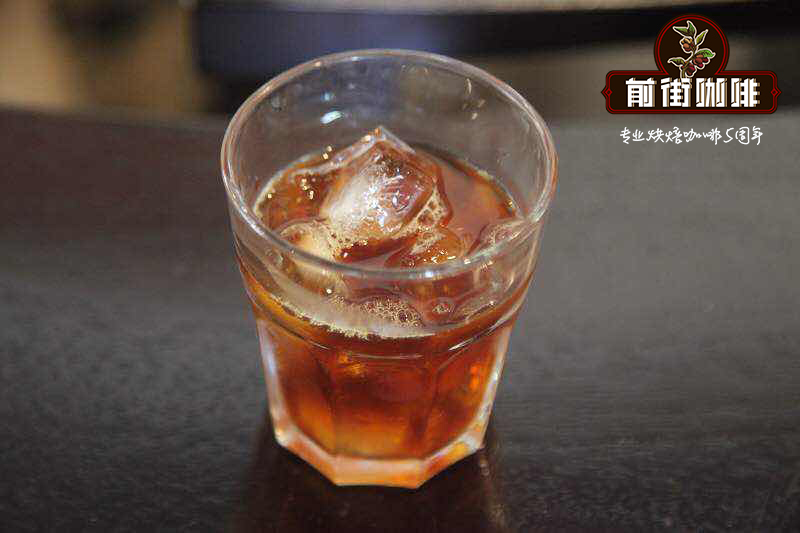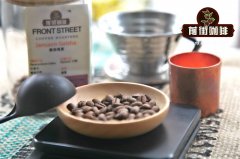The reason why Yemeni coffee grows terraced coffee what are the characteristics of how Yemeni mocha coffee is grown?

Professional coffee knowledge exchange more coffee bean information please follow the coffee workshop (Wechat official account cafe_style)
Yemen is one of the driest countries in the world. Economically, the country currently relies on oil exports for three-quarters of its income, but the World Bank predicts that the country's stocks will be used up around 2017. In a country that used to be self-sufficient in farming, 80% of its crops now have to be imported. The reasons include population expansion and water shortages caused by local misuse of Qat, a crop as old as coffee.
Chart grass is a social drug commonly used by residents of the Arabian Peninsula. Yemenis like to open rooms for banquets at home, chewing chatgrass and gossiping with friends. It contains the stimulant Cathinone, which is as refreshing as a light amphetamine. However, when the power of the drug weakens, the person who takes it will feel depressed. Although the World Health Organization (WHO) does not list it as a drug, it has been banned in many Western countries.
On the other hand, Yemen has been plagued by drought since ancient times. Its major cities rely on underground water, of which agriculture takes up 90% of the water, while growing Qat alone has already spent a lot of water, and authorities expect the underground water in the capital, Sana'a, to run out in 2017. Most of Yemen's cities are built on high mountains, and residents rely on well water from the government or the private sector for a living. The country has as many as 40, 000 to 70, 000 wells, some as deep as 600 meters underground. In addition, pumping water up the hill is expensive, with the government spending as much as $7 billion a year on drilling and pumping water. Therefore, in recent years, the local government has decided to ban chartgrass, which is a waste of water and cannot satisfy hunger, and replace it with other crops. Coinciding with the rise of the boutique coffee boom, the Yemeni government is now trying to encourage farmers to switch to coffee, which consumes half as much water as Chategrass.
Related recommendation: description of Yemeni coffee flavor and taste characteristics is Yemeni mocha coffee good?
Important Notice :
前街咖啡 FrontStreet Coffee has moved to new addredd:
FrontStreet Coffee Address: 315,Donghua East Road,GuangZhou
Tel:020 38364473
- Prev

Is cinnamon okay for Yemeni coffee? how to drink Yemeni mocha coffee and how to make it?
Coffee workshop (Wechat official account cafe_style) Yemeni coffee has the most unique, rich and fascinating complex smell in the world: red wine, wild game, dried fruit, blueberry, grape, cinnamon, tobacco, sweet spices, log and even chocolate. You can see all kinds of adjectives used in Yemeni mocha.
- Next

Hawaii Kona Kona Coffee Knowledge Popular Science What is Hawaii Kona Kona Coffee
Professional coffee knowledge exchange More coffee bean information, please pay attention to coffee workshop (Weixin Official Accounts cafe_style) mention Hawaii local specialties, KONO coffee can definitely top the list. Today, even in the Chinese market, there are all kinds of KONO coffee. On closer inspection, the vast majority of Kono coffee sold on the market is not pure Kono.
Related
- Beginners will see the "Coffee pull flower" guide!
- What is the difference between ice blog purified milk and ordinary milk coffee?
- Why is the Philippines the largest producer of crops in Liberia?
- For coffee extraction, should the fine powder be retained?
- How does extracted espresso fill pressed powder? How much strength does it take to press the powder?
- How to make jasmine cold extract coffee? Is the jasmine + latte good?
- Will this little toy really make the coffee taste better? How does Lily Drip affect coffee extraction?
- Will the action of slapping the filter cup also affect coffee extraction?
- What's the difference between powder-to-water ratio and powder-to-liquid ratio?
- What is the Ethiopian local species? What does it have to do with Heirloom native species?

